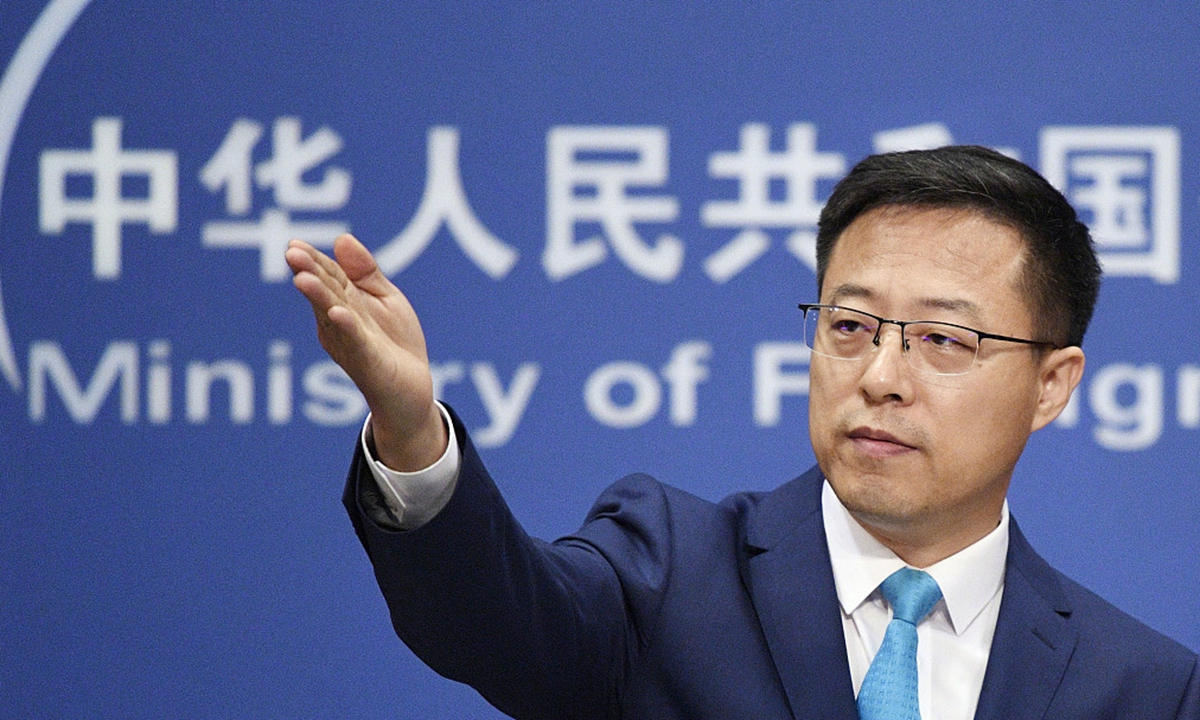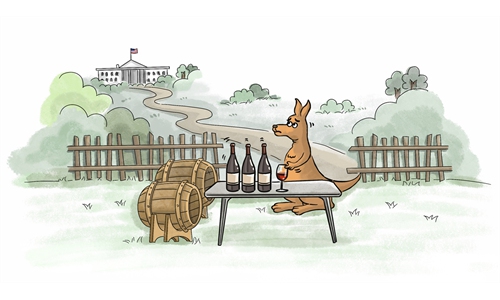FM urges politicians refrain from making irresponsible remarks after Aussie PM warns China to learn from Putin's 'strategic failure'

Zhao Lijian Photo: VCG
In response to a question over Australian Prime Minister Anthony Albanese' warning against China to learn from Russian President Vladimir Putin's "strategic failure," a spokesperson of the Chinese Foreign Ministry at a regular press briefing on Tuesday urged certain politicians to refrain from making irresponsible remarks, reiterating there is no comparison between Ukraine and the island of Taiwan given that the latter is not a sovereign state.
Zhao Lijian said that China has stated its stance over the Ukraine crisis multiple times. Also, China has stressed multiple times that the island of Taiwan is not Ukraine and there is no comparison between the two.
Zhao's comment came after Albanese made remarks on the Taiwan question in an interview with the Australian Financial Review (AFR) en route to the North Atlantic Treaty Organization (NATO) summit in Madrid, Spain.
Albanese claimed in the interview that the Russia-Ukraine conflict has been a "strategic failure" that has made Russia a "global pariah," something of which China should also take note.
Chen Hong, president of the Chinese Association of Australian Studies and director of the Australian Studies Center at East China Normal University, told the Global Times on Tuesday that the latest remarks by Albanese are unsurprising as the new Australian prime minister is catering to the essential focus of the NATO summit - countering China.
Albanese's anti-China remarks expose that the NATO summit is nominally focusing on the Ukraine crisis but essentially trying to coerce NATO members and four countries from the Asia-Pacific region - Australia, Japan, New Zealand and South Korea - to counter China, Chen pointed out.
Amid the tensions between China and Australia in recent years, Chen warned the new Australian prime minister of the need to clearly understanding the significance and sensitivity of the Taiwan question and not blindly follow the US to challenge China's bottom line, which would draw fire against Australia itself.
Since taking office in May, Albanese, who is a "greenhorn on diplomacy," has largely taken a similar line to the US on China issue, which Chen said was dangerous as the anti-China rhetoric would erode China-Australia relations.
After Australia's new Prime Minister Anthony Albanese was sworn in last month, many had hoped that the new government could bring its ties with China back on track. Against this background, if pessimism persists among Aussie business communities, it should remind the Albanese government what they have done so far may be not enough to rebuild market confidence, and that more should be done to warm up Australia's economic relations with China.
This year marks the 50th anniversary of the establishment of China-Australia diplomatic relations, which provides an opportunity to look back at all those good years and reassess the two countries' engagement and partnership.
Under the former conservative Morrison government's strategy of antagonizing and confronting China, Australia's trade relations with its largest trade partner fell to their lowest level before Albanese took office.


